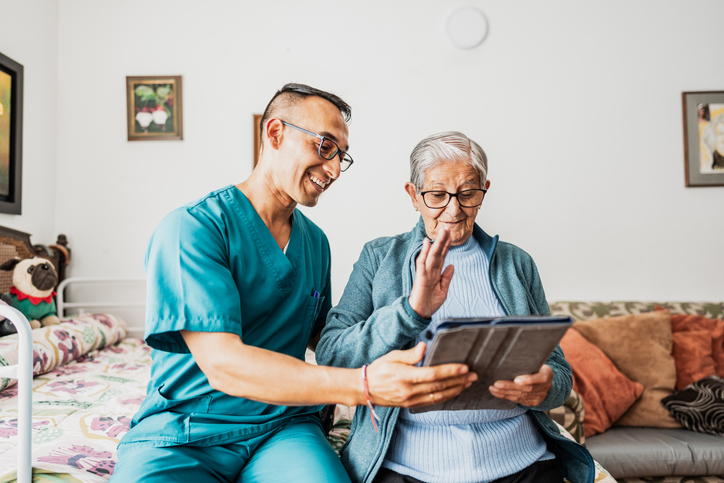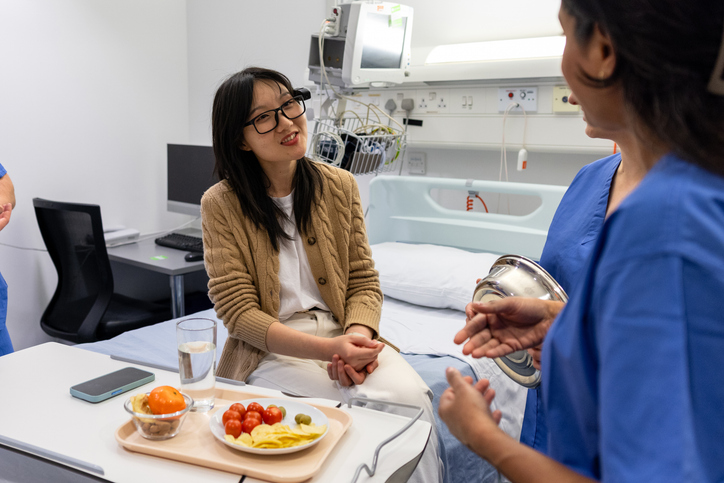GI Cancer
Advertisement
CyberKnife SBRT is an effective treatment modality for liver cancer, but the overall efficacy is dependent on immune status.
Martha Raymond, MA, the CEO of the GI Cancers Alliance, discusses the brand-new Collective Action Roadmap for GI Cancers.
Less than one-third of eligible people within one regional academic health system had a screening test ordered.
Researchers hypothesized that earlier palliative care referral would mitigate patient symptom burden.
If a symptom was reported by a patient as moderate or severe, an algorithm-based system generated an alert notification.
The effectiveness of a multidomain intervention on patients' mental and physical health post-esophagectomy was explored.
APP-First was created to assist in testing completion and referrals before a new patient meets with a surgical oncologist.
The ODYSSEY trial is comparing quality of life with combination IO treatments in real-world settings versus clinical trials.
Learn more about how disparities among patients with metastatic renal cancer have influenced mortality rates.
Learn how mindfulness and familial nutritional support can improve outcomes for patients with gastrointestinal tumors.
The study explored the effects of a nurse-led intervention called mHealth on factors such as nutritional status and intake.
Nurses can help couples communicate by identifying barriers to disclosure and offering a personalized approach.
It also showed other benefits over usual care, including improved patient compliance and gastric mucosal visibility.
A nurse-led systematic review is showing the importance of tailoring interventions to rural communities.
Shahnaz Gillani, MSN, RN, CMSRN, shares insights from her ONS Congress presentation and explains how nurses were trained.
Research presented at the 50th Annual ONS Congress highlighted the need for improved cultural competency in healthcare.
Research presented at the 50th Annual Oncology Nursing Society Congress shed light on the question.
A nurse-led study compared perceived health status, digital health literacy, and CRC screening rates with residence areas.
The study identified distinct symptom severity among 256 patients from 6 different cancer centers across the U.S.
The research team analyzed the effects of a survivorship program on quality of life in a cohort of patients with CRC.





















 © 2025 Mashup Media, LLC, a Formedics Property. All Rights Reserved.
© 2025 Mashup Media, LLC, a Formedics Property. All Rights Reserved.